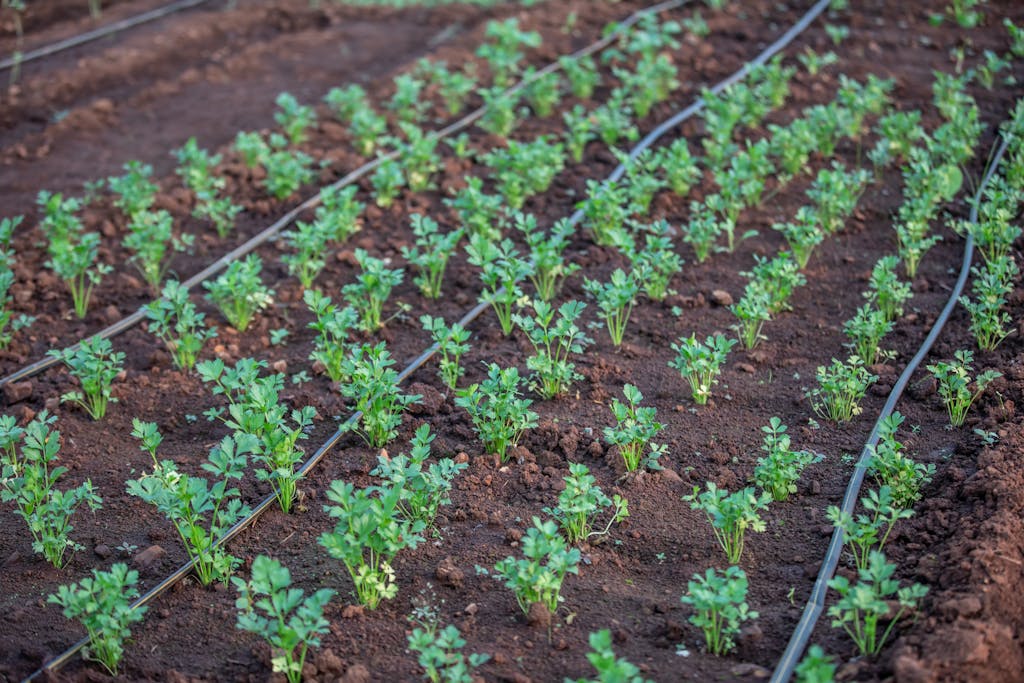Smart Irrigation: Revolutionizing Water Management in Agriculture

Introduction to Smart Irrigation
Smart irrigation represents a transformative approach to managing water resources in agriculture, responding to the pressing need for efficient water usage amidst growing environmental challenges. Traditional irrigation methods, often characterized by fixed schedules and manual operations, have been widely used for decades. However, these approaches frequently lead to significant water wastage, particularly in arid regions where water scarcity is a critical concern. Conventional systems typically fail to account for the specific needs of crops or the varying environmental conditions, resulting in either under-watering or over-watering.
In the face of climate change, the pressure on water resources continues to mount. Fluctuating weather patterns and prolonged droughts are increasingly common, which underscores the necessity for more innovative and effective water management practices. As such, smart irrigation systems harness technology to optimize water usage by automating irrigation schedules based on real-time data. These advanced systems utilize sensors and weather forecasts to deliver precise water amounts directly to plants, ensuring they receive adequate moisture. This not only conserves water but also enhances crop yields and improves overall agricultural productivity.
Moreover, the adoption of smart irrigation can result in substantial cost savings for farmers, as reduced water consumption translates into lower utility bills and minimized operational expenses. By integrating smart irrigation technology, the agricultural sector can adapt to the dual challenges of a changing climate and limited freshwater availability. Increasing efficiency in water management not only benefits individual farmers but also contributes to broader sustainability goals. As the agriculture industry continues to innovate, the implementation of smart irrigation systems is poised to play a crucial role in fostering sustainable farming practices and promoting responsible stewardship of our vital water resources.
Technologies Behind Smart Irrigation
Smart irrigation systems represent a significant advancement in agricultural water management by employing various sophisticated technologies. One of the key components is the soil moisture sensor, which measures the moisture level in the soil and provides real-time data to farmers. These sensors ensure that irrigation is applied only when necessary, thereby preventing overwatering and minimizing water waste. By utilizing soil moisture data, farmers can achieve a deeper understanding of the needs of their crops, ensuring that water is applied with precision.
In addition to soil moisture sensors, weather forecasting systems are integral to the functionality of smart irrigation. These systems analyze atmospheric conditions and predict weather patterns, allowing farmers to adjust their irrigation schedules accordingly. For example, if rain is forecasted, a smart irrigation system can automatically delay scheduled watering, optimizing water use and reducing unnecessary irrigation. This synergy between weather data and irrigation decisions not only promotes sustainability but also enhances crop resilience.
Automated controllers play a crucial role in connecting the data gathered from these technologies. By integrating inputs from both soil moisture sensors and weather forecasting systems, these controllers automatically manage irrigation systems, adjusting schedules and water output based on real-time conditions. The implementation of Internet of Things (IoT) technology further enhances these systems, enabling remote monitoring and control via mobile applications. This capability allows farmers to manage their irrigation systems from anywhere, thus saving time and resources.
Advancements in smart irrigation technologies foster increased operational efficiency, allowing farmers to conserve water while optimizing their crop yields. The combination of soil moisture sensors, weather data analysis, automated controllers, and IoT integration sets the stage for a more sustainable agricultural future, making smart irrigation an invaluable tool in modern farming practices.
Benefits of Smart Irrigation
Smart irrigation systems offer a multitude of benefits that are instrumental in transforming traditional agricultural practices. Among the most significant advantages is water conservation. By utilizing advanced technologies, such as soil moisture sensors and weather-based controllers, these systems ensure that water is applied only when necessary, effectively reducing overall water usage. According to a report from the USDA, smart irrigation practices can decrease water consumption by up to 50%, making them vital in water-scarce regions.
Improved crop yields are another key benefit of smart irrigation. When crops receive the right amount of water at the appropriate times, their growth and yield potential can greatly increase. A case study conducted in California demonstrated that farmers using smart irrigation technology experienced an increase in their corn yields by approximately 30% compared to conventional methods. This underscores the potential for cultivators to not only maintain but enhance productivity, directly impacting food security and sustainability.
Cost savings for farmers represent a further economic benefit of adopting smart irrigation. While the initial investment in smart irrigation technology may be significant, the long-term savings on water bills and energy costs can offset these expenses. Research shows that farmers investing in smart irrigation systems can save upwards of 20% on their overall water expenditure annually, leading to enhanced profitability and resource efficiency.
Moreover, smart irrigation contributes to a reduced environmental impact. By minimizing water runoff and ensuring that nutrient application is optimized, smart systems help preserve local ecosystems. Excessive water and nutrient runoff can lead to pollution in nearby waterways, but with precision irrigation, farmers can safeguard their surrounding environment while promoting sustainable practices. In conclusion, the myriad benefits of smart irrigation underscore its importance in modern agriculture, demonstrating that such innovations are not just advantageous for farmers but essential in addressing broader environmental challenges.
Challenges and Future of Smart Irrigation
Despite the numerous benefits associated with smart irrigation technology, several challenges hinder its widespread adoption in the agricultural sector. One prominent issue is the high initial cost of implementing these advanced systems. Farmers may find the financial investment in smart irrigation equipment and technology burdensome, particularly if they operate on smaller scales. This initial expenditure can also deter farmers who are uncertain about the long-term savings associated with reduced water consumption.
Another challenge is the need for technical knowledge and expertise. Smart irrigation systems often require specialized skills for installation, maintenance, and operation. Farmers who may be less technologically inclined might struggle to adapt to new systems, highlighting the need for targeted training programs and resources. In many cases, compatibility issues may arise when integrating smart irrigation technology with existing irrigation infrastructure, presenting additional hurdles for farmers transitioning to more advanced solutions.
Looking toward the future, several emerging trends indicate potential advancements in smart irrigation. Innovations in sensor technology, data analytics, and automated systems are continuously evolving, promising enhanced efficiency and user-friendliness. The integration of artificial intelligence and machine learning capabilities can lead to even more precise watering schedules based on real-time weather and soil conditions, driving high levels of resource efficiency.
To facilitate the adoption of smart irrigation, governments and organizations have a vital role to play. Policies that provide financial incentives, grants, and subsidies can encourage farmers to invest in these technologies. Additionally, fostering public-private partnerships can further support research and development in the field of smart irrigation. By leveraging collaboration among stakeholders, the agricultural sector can overcome existing challenges while embracing the innovations that promise to revolutionize water management.







